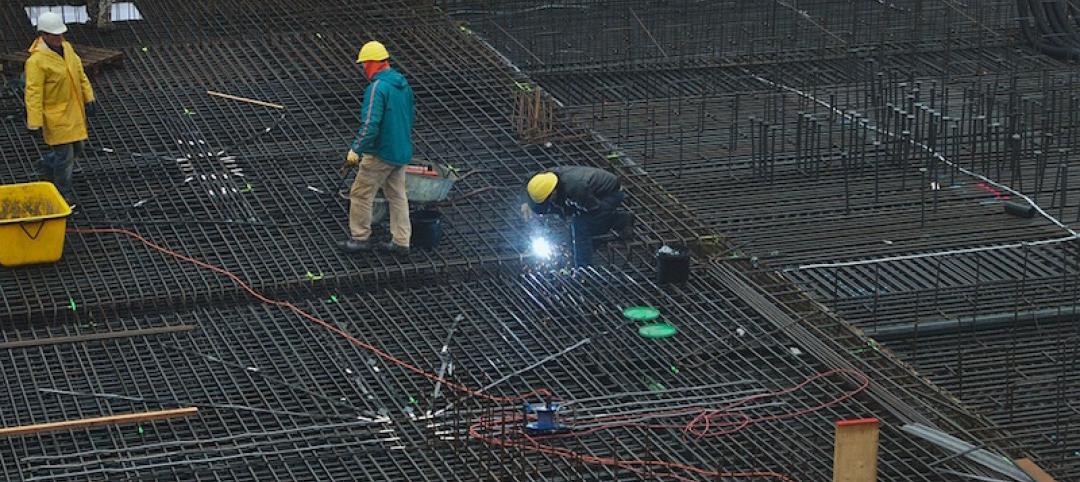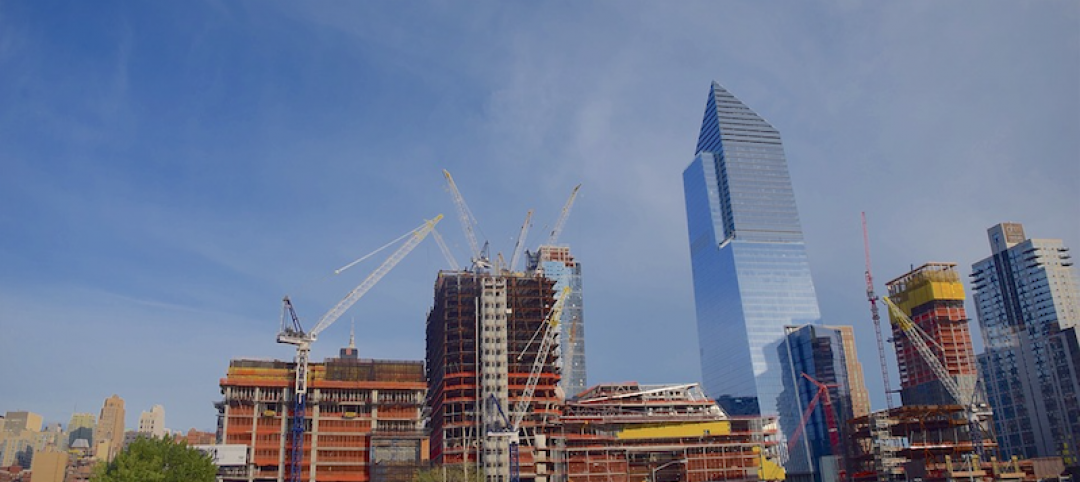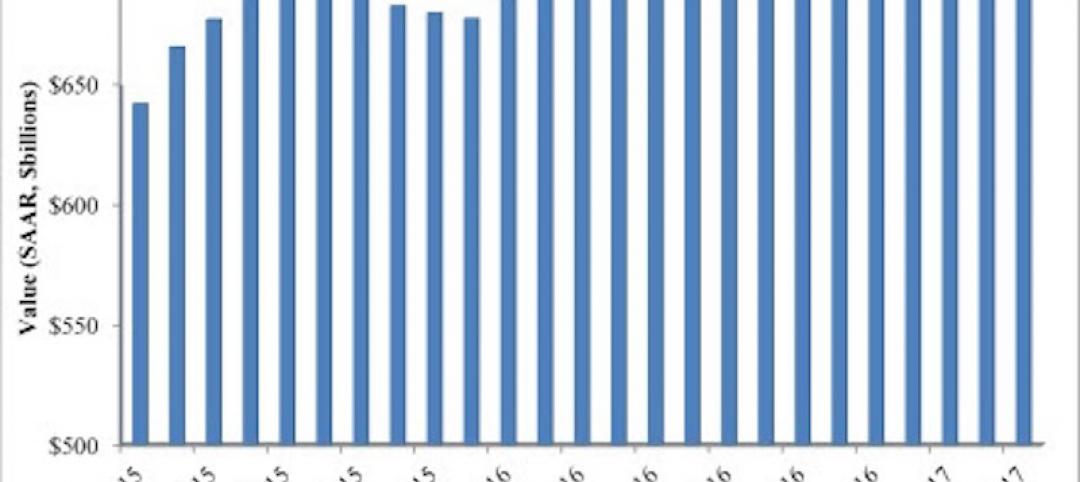Commercial construction is in high demand across the country and contractors are confident in the trajectory of the industry, according to the USG + U.S. Chamber of Commerce Commercial Construction Index (‘Index’), that launched recently. Nearly all contractors surveyed – 96 percent – expect revenues to grow or remain stable this year compared to 2016, with 40 percent expecting an increase and only 3 percent expecting a decrease in revenue.
The Index is a new quarterly economic indicator designed to gauge what drives the commercial construction industry and its leaders, including specific issues like backlog of work, new business pipeline, revenue projections, workforce issues, and access to financing. Given the sector’s importance to the U.S. economy and the outsized role it could play in years to come, the data contained in the Index will be vital to better understanding trends, challenges and opportunities. The research was developed with Dodge Data & Analytics (DD&A), the leading provider of insights and data for the construction industry, by surveying commercial and institutional contractors.
“This first-of-its-kind Index was born out of a need to understand the issues that affect commercial construction. The Index will deliver critical insights into the future health of the industry,” said Jennifer Scanlon, president and chief executive officer of USG Corporation. “USG is committed to providing solutions for our customers in order to help the entire industry make strong contributions to the U.S. economy. Through the Index we are able to identify areas of strength and pinpoint areas of improvement where industry leaders must focus.”
Two-thirds (66 percent) of contractors said they expect to employ more workers in the next six months, indicating growth in a sector that employs approximately 3 million Americans. But 61 percent of Index respondents reported difficultly finding skilled workers. The contractors reported the biggest shortages in the concrete, interior finishes/millwork, masonry, electrical and plumbing trades.
“The commercial construction industry is a vital engine for the American economy,” said Tom Donohue, president and CEO of the U.S. Chamber. “The projected growth uncovered in this research is good news for employers and workers, but there is reason for concern in the lack of qualified talent available in vital specialties. To get our economy growing to its full potential, we must ensure that we have a workforce that is ready to fill the available jobs. Each quarter, this first-of-its-kind research will make us smarter about future challenges and inform solutions for our country’s leaders.”
The report looks at the results of three leading indicators – backlog levels, new business opportunities and revenue forecasts – to generate a composite index on a scale of 0-100 that serves as an indicator of health for the contractor segment on a quarterly basis. The Q2 2017 composite index score was 76, representing continued health in the sector. This composite score is up two points from a 74 in the Q1 survey, driven primarily by a bump in the ratio between actual and ideal backlog. New business and revenue results also saw slight increases quarter-over-quarter.
The composite scores from the three drivers of confidence were:
Backlog: 81, up four points in Q2 over Q1
Contractors’ current average backlog levels represent 81 percent of their ideal backlog levels, up from 77 percent in Q1. On average, contractors currently hold 9.9 months of backlog, while the ideal amount is 12 months.
New Business: 77, up two points in Q2
Nearly all contractors continue to report high or moderate confidence in the market. Well over half of contractors (59 percent) reported high confidence in new business over the next 12 months (up from 51 percent in Q1), indicating a shift to higher levels of confidence among some respondents.
Revenues: 71, up two points in Q2
An overwhelming 96 percent of contractors expect revenues to grow or remain stable in 2017 over 2016. Of those expecting revenue increases, the actual percentage of expected increases varies widely. Forty percent expect revenue increases of 7 percent or more in the next 12 months.
The Index findings are compiled using survey results from contractors within a DD&A panel of more than 2,700 decision makers from across key facets of the commercial construction industry. This first public report was developed using research from previous quarters, which puts into context the state of contractor sentiment in the U.S. building industry.
Related Stories
Market Data | Jun 21, 2017
Design billings maintain solid footing, strong momentum reflected in project inquiries/design contracts
Balanced growth results in billings gains in all sectors.
Industry Research | Jun 13, 2017
Gender, racial, and ethnic diversity increases among emerging professionals
For the first time since NCARB began collecting demographics data, gender equity improved along every career stage.
Industry Research | May 25, 2017
Project labor agreement mandates inflate cost of construction 13%
Ohio schools built under government-mandated project labor agreements (PLAs) cost 13.12 percent more than schools that were bid and constructed through fair and open competition.
Market Data | May 24, 2017
Design billings increasing entering height of construction season
All regions report positive business conditions.
Market Data | May 24, 2017
The top franchise companies in the construction pipeline
3 franchise companies comprise 65% of all rooms in the Total Pipeline.
Industry Research | May 24, 2017
These buildings paid the highest property taxes in 2016
Office buildings dominate the list, but a residential community climbed as high as number two on the list.
Market Data | May 16, 2017
Construction firms add 5,000 jobs in April
Unemployment down to 4.4%; Specialty trade jobs dip slightly.
Industry Research | May 4, 2017
How your AEC firm can go from the shortlist to winning new business
Here are four key lessons to help you close more business.
Engineers | May 3, 2017
At first buoyed by Trump election, U.S. engineers now less optimistic about markets, new survey shows
The first quarter 2017 (Q1/17) of ACEC’s Engineering Business Index (EBI) dipped slightly (0.5 points) to 66.0.
Market Data | May 2, 2017
Nonresidential Spending loses steam after strong start to year
Spending in the segment totaled $708.6 billion on a seasonally adjusted, annualized basis.

















